Informal costs are one of the 10 component indicators of the Provincial Competitiveness Index (PCI) used to measure the costs incurred when businesses transact with state agencies when implementing legal regulations in the process of business operations. This is also an important factor for businesses to consider and weigh when choosing an investment location. Therefore, in recent years, Ha Nam province has paid special attention to directing the implementation of solutions to improve this index.
In reality, paying too many informal costs in the process of handling administrative procedures such as tax procedures, credit access, fire prevention and fighting, environment, transportation, goods circulation, inspection, examination, etc. will cause enterprises to increase production costs. From there, it is forced to account for production costs, leading to an increase in product selling prices to the market to ensure profits. However, high costs make products less competitive in the market. Therefore, in directing the improvement of the PCI Index in recent years, the province has paid special attention to directing the improvement of the Informal Cost Index. This is clearly demonstrated through the results achieved in recent years.
Survey data from the Vietnam Federation of Commerce and Industry (VCCI) shows that the Informal Cost Index of Ha Nam province in the period of 2019-2022 has continuously improved and increased in ranking. In 2022 alone, the Informal Cost Index reached 6.87 points, ranking 36/63 provinces and cities (up 0.24 points and up 8 places compared to 2021). This is also one of the 5 component indexes of the PCI Index that has increased in both score and ranking in 2022, highly appreciated by businesses.
Mr. Nguyen Anh Tien, Chairman of the Provincial Young Entrepreneurs Association, said: In recent years, the Provincial Party Committee and the Provincial People's Committee have paid special attention to and accompanied the development of the business community, especially small and medium enterprises. This is most clearly demonstrated through the fact that provincial leaders regularly organize meetings and contacts with businesses, associations and business associations to grasp information, listen and promptly resolve difficulties and recommendations of businesses. Thanks to that, businesses have been supported and facilitated in all aspects, including the settlement of administrative procedures in the investment and operation process, especially procedures related to construction, bidding, land, granting of conditional business licenses, etc.

According to the Department of Planning and Investment, a specific analysis of the component indicators of the Informal Cost Index of Ha Nam province in 2022 shows that up to 11/16 indicators were highly appreciated by enterprises, with an improvement in rankings compared to 2021 and achieved a good score compared to the national average. Specifically: 21% of surveyed enterprises answered that they had to pay informal costs to fire prevention and fighting inspectors, ranked 10th out of 63 provinces and cities (up 39 ranks); 22% of enterprises said they had to pay informal costs to environmental inspectors, ranked 22nd out of 63 provinces and cities (up 21 ranks); 71% of enterprises said they paid informal costs to construction inspectors, ranked 22nd out of 63 provinces and cities (up 6 ranks); 36% of enterprises have to pay informal fees to speed up the implementation of land procedures, ranked 22nd/63 provinces and cities (up 33 places); 35% of enterprises think that paying "commission" is necessary to have the opportunity to win the bid, ranked 27th/63 provinces and cities (up 18 places); 45% of surveyed enterprises think that enterprises in the same industry often have to pay additional informal fees, ranked 36th/63 provinces and cities (up 10 places); 64% of enterprises think that work often achieves the expected results after paying informal fees, ranked 22nd/63 provinces and cities (up 2 places); 75% of enterprises assess that the phenomenon of harassment when handling procedures for enterprises is common, ranked 41st/63 provinces and cities (up 9 places); 90% of enterprises agreed that informal costs were at an acceptable level, ranking 23rd out of 63 provinces and cities (up 7 ranks); 45% of surveyed enterprises said that they had to pay informal costs to specialized agencies when carrying out procedures for granting conditional business licenses, ranking 58th out of 63 provinces and cities (up 2 ranks); 54% of enterprises had to pay informal costs to market management officers, ranking 44th out of 63 provinces and cities (up 9 ranks).
In addition to the achieved results, the survey showed that there are still some limitations and shortcomings that are common in the process of handling procedures for businesses. Notably, 5% of businesses said they had to spend more than 10% of their revenue on informal costs, higher than the national average of 3.82% (up 2% and down 21 places compared to 2021). In addition, 23% of businesses said they paid informal costs to inspectors (down 17 places compared to 2021); 11% of businesses said they paid informal costs when carrying out business registration procedures (down 24 places compared to 2021); 50% of businesses had to pay informal costs to tax inspectors (down 6 places compared to 2021); 24% of businesses have disputes but do not choose court to resolve them due to concerns that "fixing the case" is common (down 23 places compared to 2021).
Faced with the above situation, implementing the direction of the Provincial People's Committee, departments, branches and localities are focusing on synchronously implementing measures to continue to maintain and improve the rankings of component indicators in the Informal Cost Index, contributing to completing the target of 2023, the CPI of Ha Nam will increase by 6-8 levels compared to 2022. Specifically, the Provincial Inspectorate strengthens state management in the field of inspection, proposes to handle officials and civil servants who take advantage of their positions, powers and assigned tasks to commit acts and manifestations of harassment, causing difficulties for businesses and people when carrying out administrative procedures, handling related work; reviewing, adjusting and reducing overlapping and unnecessary inspections and examinations of businesses; create favorable conditions for businesses to exercise their right to complain and denounce acts of corruption, harassment, and irresponsibility of state management officials in handling work that cause difficulties and damage to businesses.
In addition, departments, branches, People's Committees of districts, towns and cities also regularly inspect and supervise the staff, civil servants and public employees to promptly detect and strictly handle those who harass and cause difficulties for businesses; at the same time, focus on propaganda and education to raise political awareness and moral qualities for staff, civil servants, especially those who directly handle procedures for businesses...
Nguyen Oanh
Source








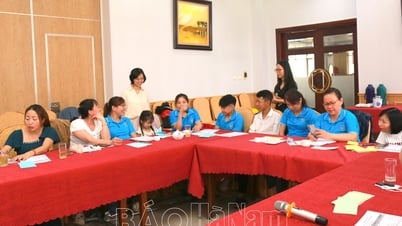

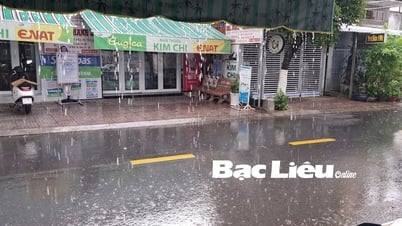
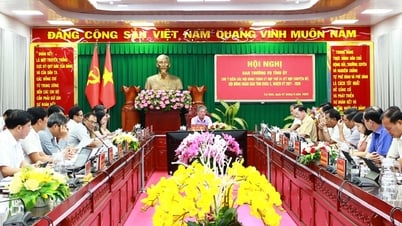

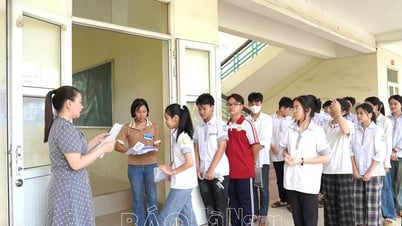
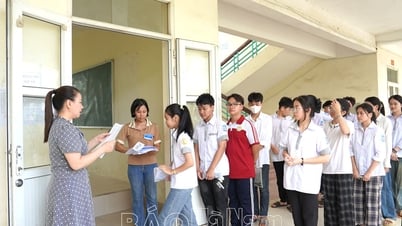







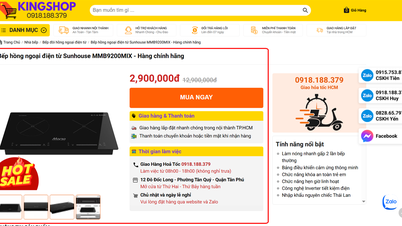















































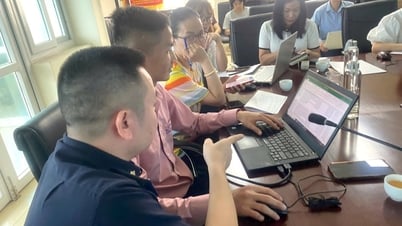





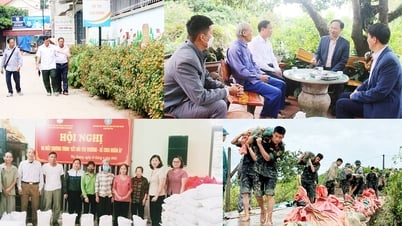

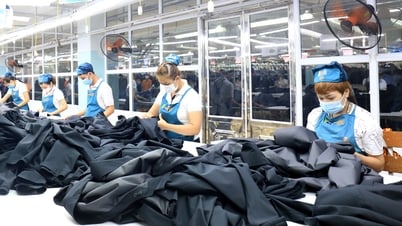







![[OCOP REVIEW] Tu Duyen Syrup - The essence of herbs from the mountains and forests of Nhu Thanh](https://vphoto.vietnam.vn/thumb/402x226/vietnam/resource/IMAGE/2025/6/5/58ca32fce4ec44039e444fbfae7e75ec)







Comment (0)